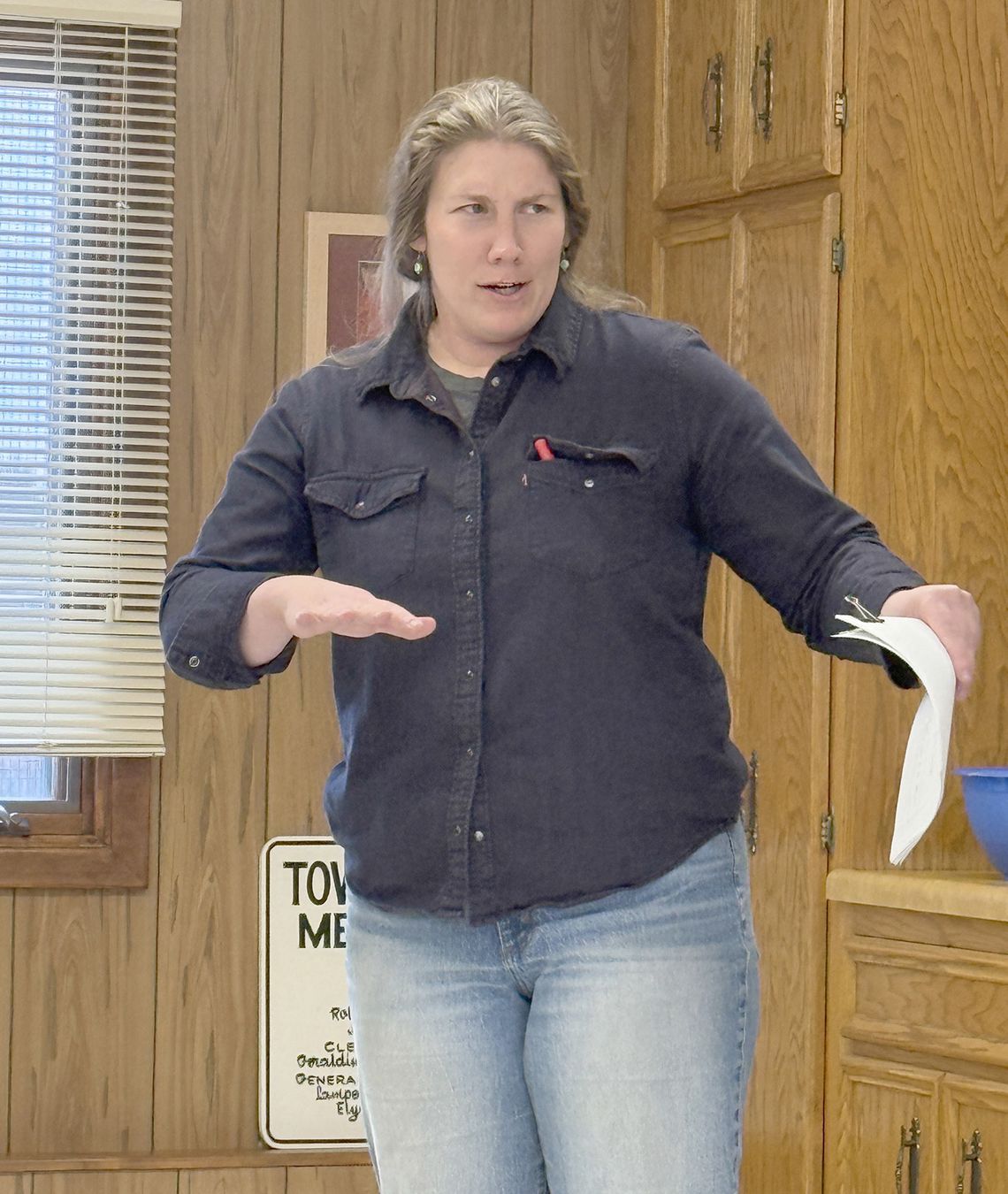by Tom Coombe The Ely area’s lodging tax was a hot topic at two community gatherings this week.
Abby Dare of the Ely Tourism Bureau briefed Tuesday Group attendees about the bureau’s efforts to promote and market the Ely area, utilizing proceeds from a lodging tax collected at hotels, motels, resorts and vacation rentals.
The same day, Dare made a similar presentation to the Morse town board, where the discussion shifted to making sure all lodging establishments are paying the tax, and speculation that visits to the Ely area have declined.
There were more questions than answers during the Morse discussion, and the lodging tax has been a source of controversy behind the scenes, given ongoing mediation involving the Ely Chamber of Commerce, the Ely Tourism Bureau and the Lodging Tax Joint Powers Board, which includes representatives from all of the government entities where the tax is being collected.
Annual lodging tax revenues ranged from roughly $271,000 to $286,000 with a high of $306,049 collected in 2014, from 2014-20, according to figures released at the Morse meeting.
But those totals included receipts from Ely area establishments both in St. Louis County and Lake County.
Since late-2020, Lake County figures have not been included in the totals and collections have been largely flat, ranging from $205,000 to $209,000, with $198,714 collected in 2024 through October.
The numbers prompted Morse supervisor Bob Berrini to surmise that tourism is declining, particularly given that many lodging establishments are charging higher rates now than five or 10 year ago, “They’re charging a lot more money and less people are coming in,” said Berrini. “Let’s face it there’s less.”
But the tourism bureau, which promotes Ely in numerous ways with funds it receives from the lodging tax, has a different take.
“I think the numbers we’re getting are not accurate in terms of what’s the truth in terms of people staying overnight in the area,” said Dare.
Dare estimated that as much as $30,000 may be going uncollected, in part because of the proliferation of online travel agencies such as Experia and Airbnb.
“It’s really murkying the waters of tracking,” said Dare. “This system is not designed to be the most responsible lodging tax collectors. It’s the Wild West a little bit, with the past 15 years and tons of online booking platforms really changing the scene.”
Dare added that some short-term rental proprietors may also be unaware of the requirement to collect the tax, which is three percent for St. Louis County properties and four percent in Lake County.
Currently, some tax collections go to Cook County and others to the state of Minnesota, to be funneled back to the Lodging Tax Joint Powers Board.
Those funds now go to the tourism bureau, a private non-profit entity. The money is used not only to pay for advertising but to cover payroll for staff who do everything from compiling videos, social media posts and podcasts to administration.
Dare told the Tuesday Group that the joint powers board could contract with outside entities to market Ely, but she made the case the community benefits from the locally-based approach.
“This area has chosen to create a marketing team who lives here and works here who’s totally involved in the community,” said Dare. “They’re top-tier professional people and we’re really proud of that.”
Dare cited statistics including a 94 percent “seethrough” rate, compared to an industry average of 60, for videos promoting the Ely area.
In a battle for tourism dollars, Dare said Ely is competing with communities including Branson, MO and Ashville, NC, as well as Grand Marais closer to home.
“We are competing with them to keep people’s attention, to come here and stay overnight and to shop in our shops,” said Dare.
The tourism bureau is also working with other local events, including the Ely Winter Festival, Ely Film Festival and Ely Marathon, to promote those happenings on tourism bureau platforms.
It has also teamed with the Forest Service “to promote not just the Boundary Waters, but the whole national forest to recreate in.”
“We have an amazing reach and we want to keep that and funnel local programs through those things,” said Dare. “We want to be at the table and we want Ely to thrive. We want Ely’s culture to be healthy. We want Ely’s economy to be healthy.”
Yet challenges, including the murky collection and enforcement picture, remain.
Morse discussion turned to efforts to ensure that all lodging establishments, including short-term rentals, are paying the tax.
“Those people have to pay by law,” said Nick Wognum, Morse town clerk. “If that’s not going to be enforced, we need to look at a different way of it being done.”
Enforcement efforts tend to be the responsibility of government entities, but it wasn’t immediately clear how it might take place or at what level of government. Dare indicated that software to be used by the tourism bureau may aid in identifying all rental properties in the region, including those on sites such as Airbnb.
“We really believe with better organization and using this software, we will collect an accurate amount of tax,” said Dare.
“The lodging tax (joint powers) board is trying to get things straight,” said Morse supervisor and lodging tax board chair Terry Soderberg. “We’re still arguing with Lake County to get our fair share of the money.”
Dare said the tourism bureau wants to be part of a long-term solution.
“‘We live in a beautiful area, our job is to showcase that,” she said.
.jpg)










